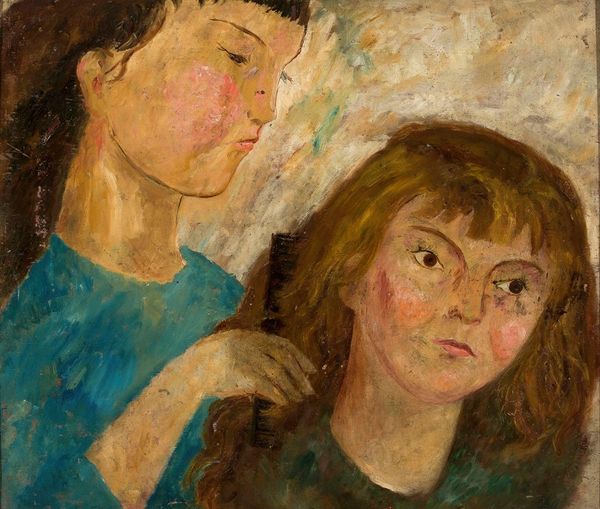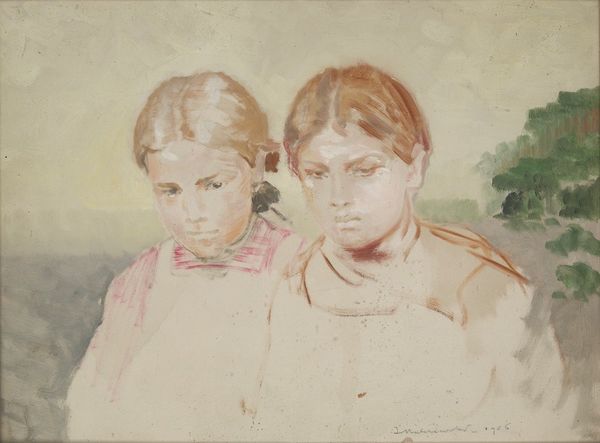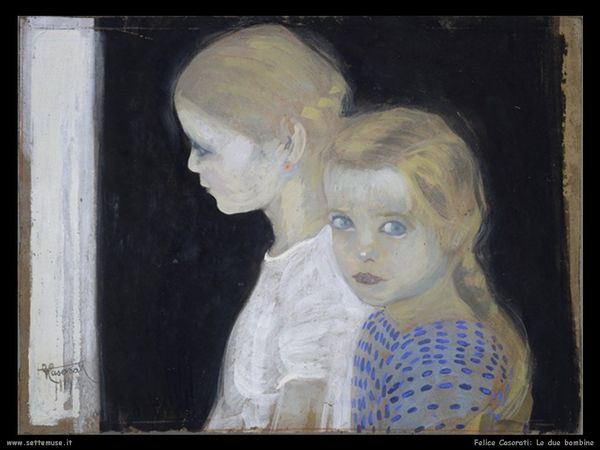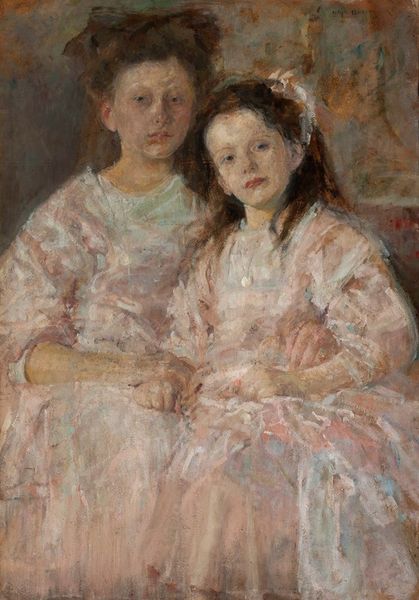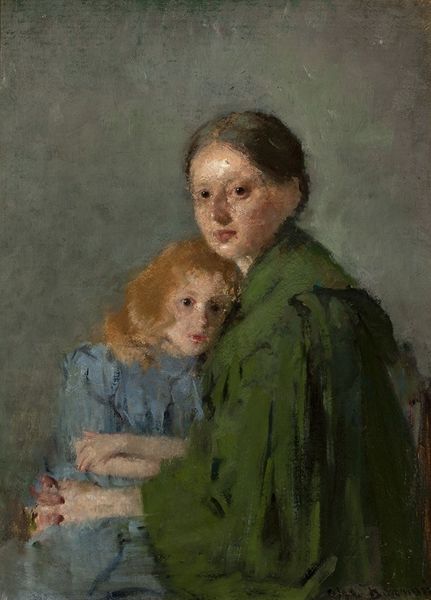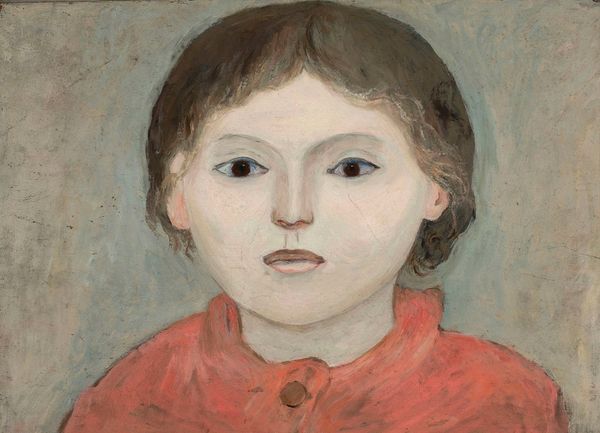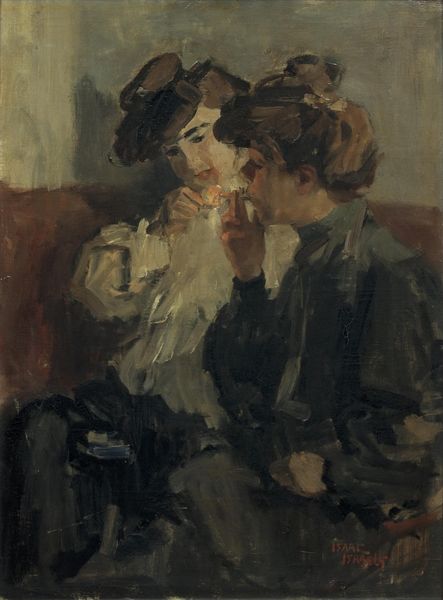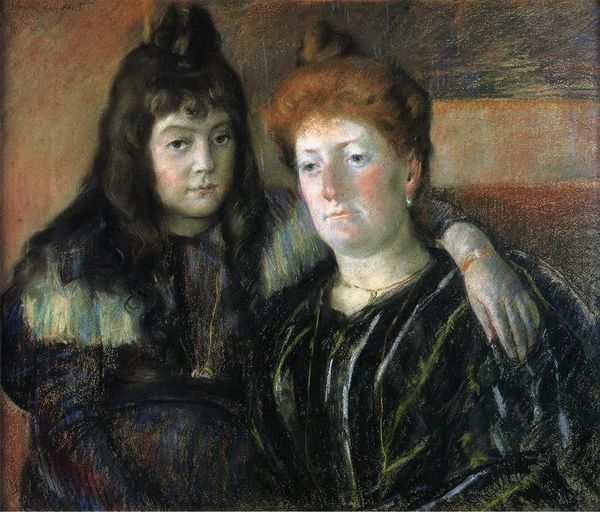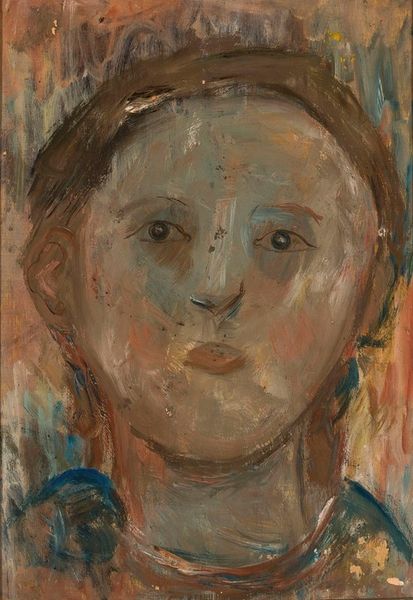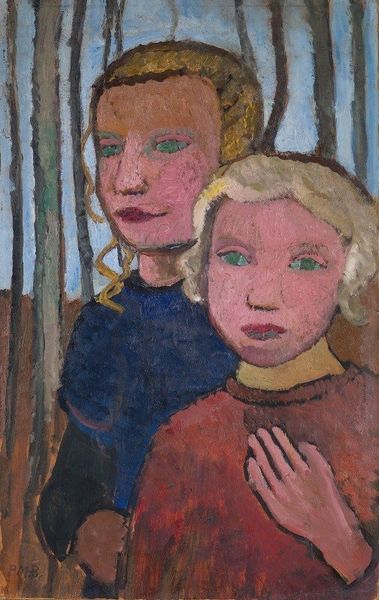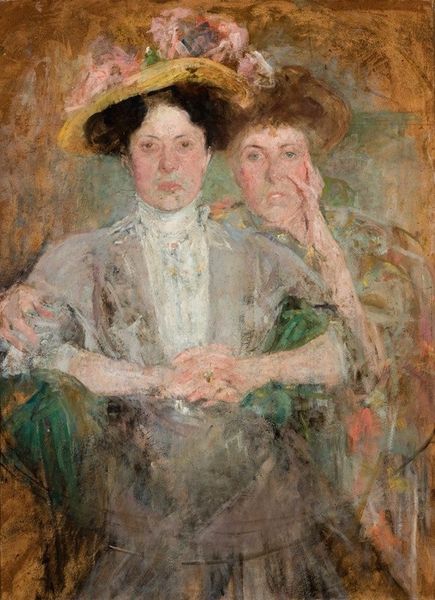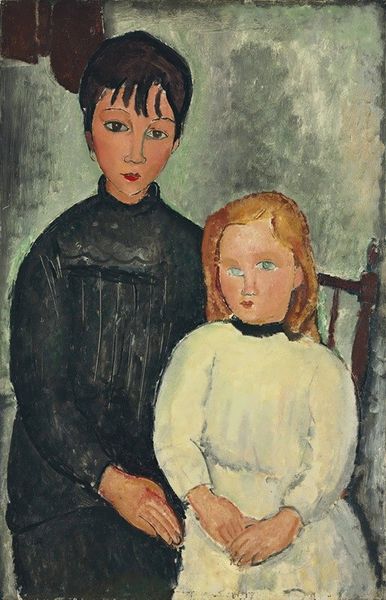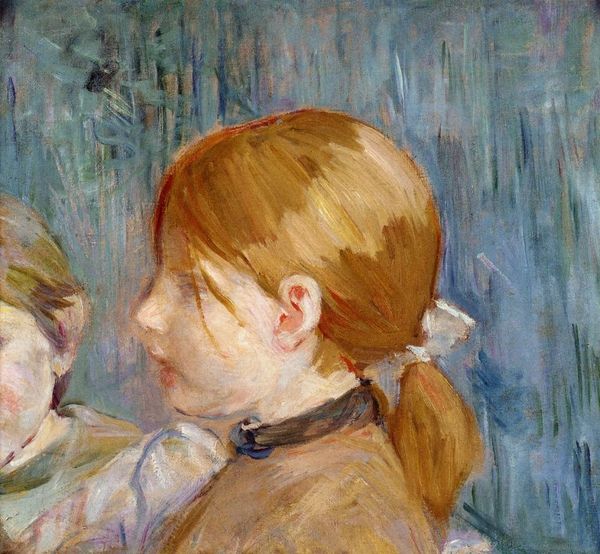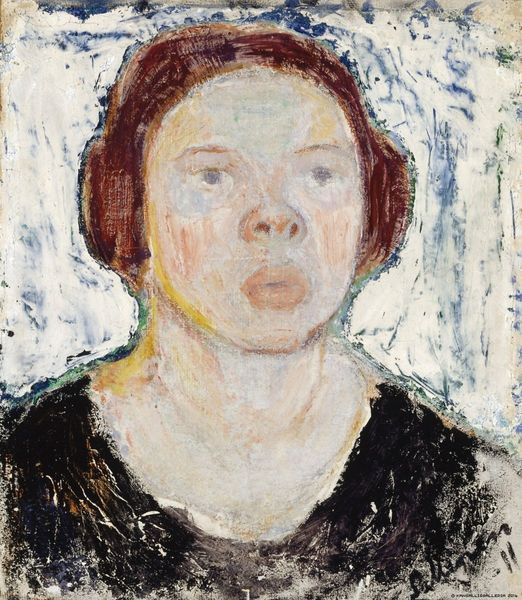
painting, oil-paint
#
portrait
#
figurative
#
painting
#
oil-paint
#
oil painting
#
group-portraits
#
expressionism
#
portrait drawing
#
portrait art
#
modernism
Copyright: Public Domain: Artvee
Curator: What strikes me first about this painting is the raw application of the oil paint. Editor: Yes, it has an immediate presence, doesn't it? These two children have a weight to their gaze despite the somewhat hurried brushstrokes. This is Tadeusz Makowski’s "Brothers", created in 1920. Curator: Makowski’s artistic journey, particularly his turn towards children as subjects after relocating to France, is fascinating. Considering the oil paint he uses and the way he seemingly carves out the figures through layered brushwork, I find myself thinking about the material choices that frame our perception of childhood during that era. The children almost appear to emerge from the background. Editor: Absolutely. He spent a considerable time of his artistic life depicting childhood—orphans especially. We should examine it through the context of interwar Europe. Notice how this style embraces simplicity? It counters prevailing academic portraiture, thus speaking volumes about how social representation and art world trends were changing. It reflects the democratized representation afforded by modernism. Curator: And if you look closely, it seems he used the butt end of his brush to incise lines, almost etching the facial features. This, for me, really emphasizes his intimate connection to the art-making process. What’s interesting too, I think, is considering the market for these types of portraits at the time – who was buying and commissioning this kind of work? Was this aesthetic driven by his clientele, or by artistic conviction? Editor: Those are compelling questions. What I notice is that, as modern art started entering public collections, the artists began to address universal themes which had before them been seen as either niche or radical. You get that here. "Brothers" speaks to fundamental aspects of human relations at the time as Europe reshaped itself following the end of war. Curator: Precisely, you make a valid point! It challenges this notion of what portraits can achieve. We are moved far beyond status or even individual identity. Editor: Indeed. Makowski provides a unique perspective on how this pivotal moment in European history impacted how we perceive identity on canvas. Curator: To put a cap on it: his distinctive handling of the materials makes you pause and consider both the social moment as well as art-making techniques. Editor: And ultimately encourages us to consider children, brotherhood, and Europe through new lenses.
Comments
No comments
Be the first to comment and join the conversation on the ultimate creative platform.
